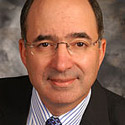11:24 AM
Market Orders Are Da Bomb
Limit orders were da bomb. But in a post-Reg NMS world, market orders rule. In a pre-Reg NMS OTC market, the exchange that controlled the limit order controlled the marketplace. Limit orders displayed depth, liquidity, activity and cried out to brokers to hit them. In addition, the more limit orders a venue could attract, the more liquidity it sucked in. Liquidity then begets liquidity and so forth and so on, and, before long, the ECN that grabbed the most limit orders ruled the roost.
So important were limit orders that ECNs and exchanges restructured their incentives to provide rebates for adding liquidity (posting limit orders) and charges for taking liquidity. In thinking about this for some time, I believe that Reg NMS may change this structure.
There are two ways to take liquidity in a post-NMS world: directly or indirectly. Orders can be routed directly to the venue with the best price, or best execution can be delegated to an exchange for routing. If the broker takes execution responsibility, it would be best to trade across venue by price, systematically removing all liquidity at each price point across trading venues before pulling liquidity from the next price point. Hence, the trader would exhaust all liquidity from the lowest price point and then move to the next higher price point.
However, does the exchange/ECN have the same incentive structure? Does NMS force them to execute in this manner? Unfortunately not. Reg NMS did not implement a full depth-of-book trade-through rule (thank whomever you pray to), only a top-of-book trade-through rule (curse whomever you pray to) - and then, only for displayed orders. The NMS rules only prohibit execution venues from trading through the top of book of other electronically accessible markets, and venues only need to interact with other execution venues on a one-second interval. Now, one second may seem quick, but when trades are being executed in milliseconds, one second can be an eternity.
Larry Tabb is the founder and CEO of TABB Group, the financial markets' research and strategic advisory firm focused exclusively on capital markets. Founded in 2003 and based on the interview-based research methodology of "first-person knowledge" he developed, TABB Group ... View Full Bio





























